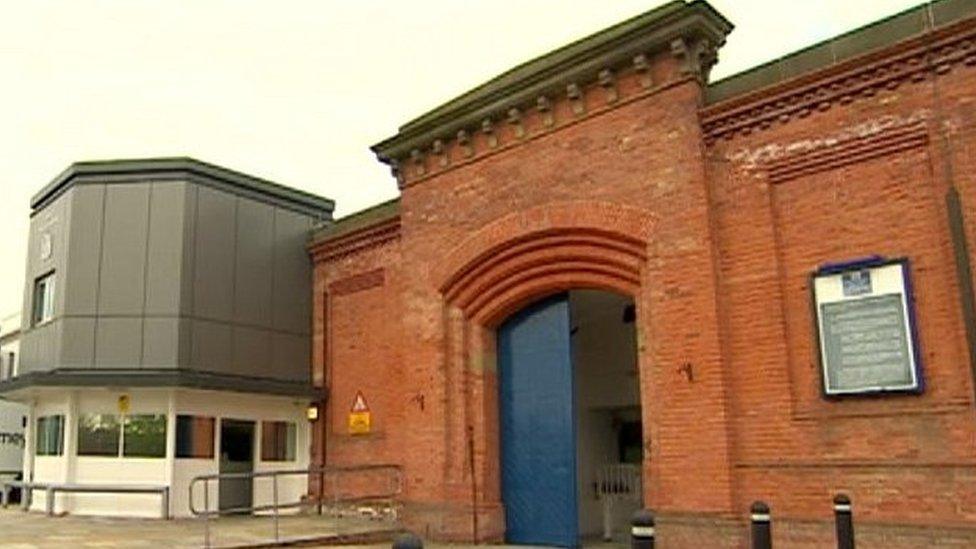Prisons minister Rory Stewart: I'll resign if drugs and violence don't go down
- Published
- comments
Rory Stewart: Judge me on my record in 12 months time
Prisons minister Rory Stewart says he will resign in a year if he hasn't managed to reduce drugs and violence levels in 10 target jails in England.
He made the promise as the government announced £10m to improve security and conditions at the jails.
New body scanners and sniffer dogs are to be introduced in the prisons, which are described as "challenging", in a clampdown on drugs and mobile phones.
The dogs have been trained to detect psychoactive substances such as Spice.
Ministers also want to raise standards of leadership by sending prison governors to military-style colleges.
And there will be a programme of repairs and improvements to cell windows and perimeter security in the prisons.
Spice 'causing huge problems' in prisons
Allow boxing in prisons, expert says
Speaking to the BBC, Mr Stewart said: "I believe in the prison service, I believe in our prison offices, I believe this can be turned around."
"I want you to judge me on those results and I will resign if I don't succeed."
He added that he expected to be judged on whether there had been a "substantial" reduction in the number of assaults.
Asked how much of a reduction he would consider a success - 25% or 10% - Mr Stewart said it would be "something of that sort".

How big is the challenge?
BBC Reality Check
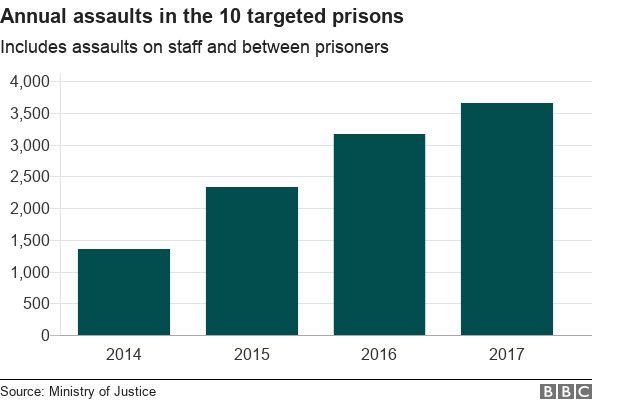
Last year there were more than 3,500 assaults in the 10 prisons that the Ministry of Justice is targeting. That was an increase of 15% on the previous year and more than double the number of assaults that took place in 2014.
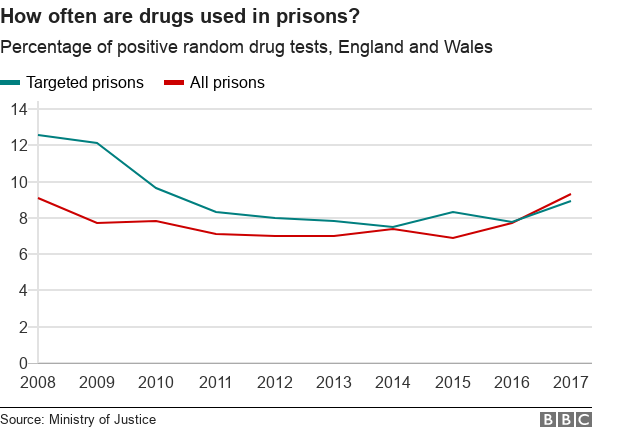
Based on the results of mandatory tests on prisoners, drug use in the 10 targeted prisons increased slightly last year. Despite the rise, drug use in these jails is very close to the average for all prisons in England and Wales - with just under 10% of random drug tests proving positive.

The new measures are being targeted at 10 jails which the Ministry of Justice says have "acute problems" with high drug use, violence and building issues.
They are:
Hull - Category B
Humber, East Riding of Yorkshire - Category C
Leeds - Category B
Lindholme, near Doncaster - Category C/D
Moorland, Hatfield Woodhouse, South Yorkshire - Category C
Wealstun, near Wetherby, West Yorkshire - Category C
Nottingham - Category B
Ranby, Nottinghamshire - Category C
Wormwood Scrubs, west London - Category B
Isis, south-east London - Category C
It comes after figures published by the Ministry of Justice last month, external showed incidents of self-harm and assaults in prisons were at record levels. Seizures of smuggled-in drugs and mobile phones also rose by 23% and 15% respectively in the year to March.
Ben, who has served five years inside HMP Oakwood, has become a mentor to other prisoners
Mr Stewart said the changes would pave the way for a "new ethos and new direction" for prisons, saying: "It is vital we set challenging standards so prisons are places where offenders can turn their lives around.
"We need to make these prisons calmer, more orderly places and in the end that comes down to challenging and managing prisoners consistently, firmly and fairly."

Analysis
By Danny Shaw, BBC home affairs correspondent
While much of Whitehall is on holiday, the Ministry of Justice has been busy - taking advantage of the sleepy summer news agenda with a series of press releases about prison reform.
The announcements have included a report on sport in prison, a pilot scheme to promote community sentences and plans for in-cell telephones.
The latest measures - £10m for the 10 most challenging prisons - will certainly make a difference. X-ray scanners, for example, are highly effective at detecting drugs - it's just a wonder it's taken so long for them to be introduced.
The energetic prisons minister Rory Stewart, who has immersed himself in the brief since he was appointed, is right to point out that the key to a stable prison is leadership.
But his idea to raise standards among governors, with a military-style training college, will take time to yield results.

Of the £10m investment, £6m is being earmarked for security measures, £3m for the repairs and £1m for training.
The Ministry of Defence has been contacted for help in setting up a training scheme for prison governors, similar to that for senior members of the armed forces.
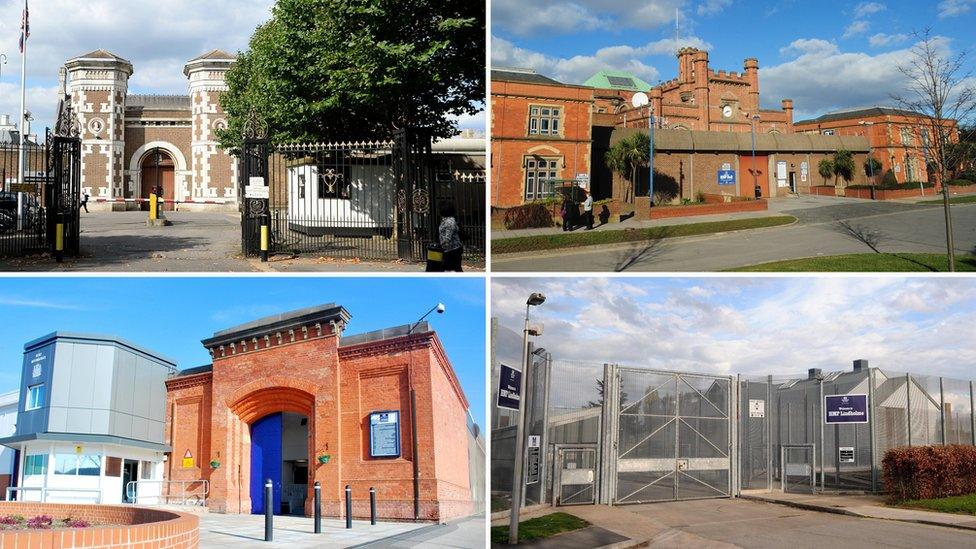
Wormwood Scrubs, Hull, Lindholme and Nottingham (Clockwise from top left) are among the 10 prisons to benefit
However, the Prison Reform Trust said the problems in the jails were caused by a failure to match resources to demand.
Its director, Peter Dawson, said: "It was a catastrophic failure to provide that balance which caused the collapse of prison safety after 2012 - trying to tell governors how to run prisons is not going to put it right."
Frances Crook, chief executive of the Howard League for Penal Reform, welcomed the extra funding but said "the devil will be in the detail".
Shadow justice secretary Richard Burgon said the government must go "much further" and set out an emergency plan across the prisons estate with substantial new funding to put an end to this crisis and make our prisons safe and humane for staff and inmates".
There are about 84,000 inmates in more than 100 prisons, across England and Wales.
- Published15 August 2018
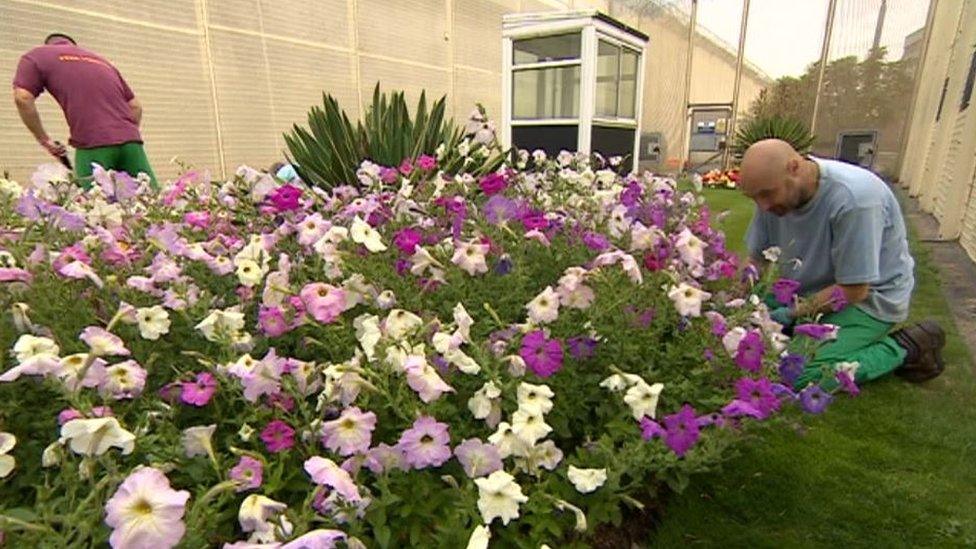
- Published13 August 2018

- Published11 August 2018

- Published31 July 2018
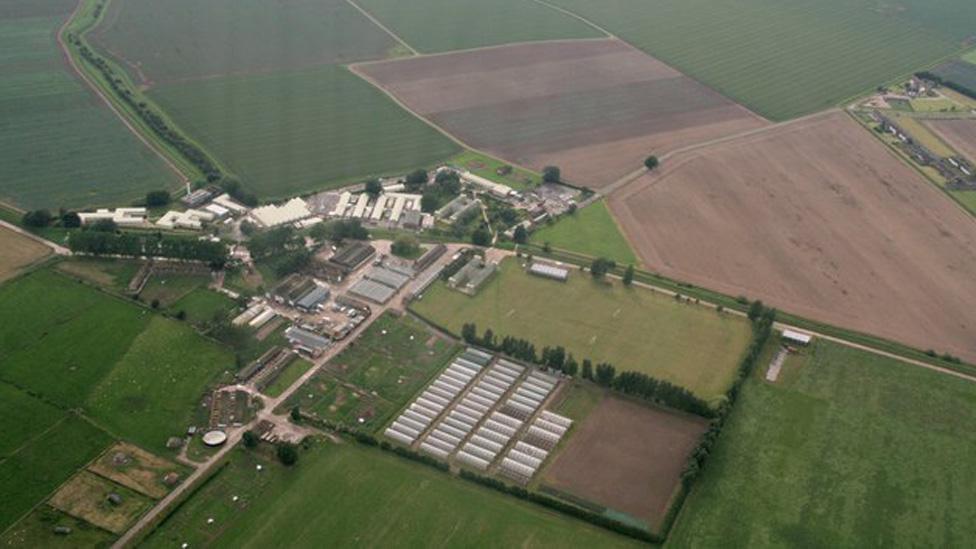
- Published13 July 2018

- Published17 May 2018
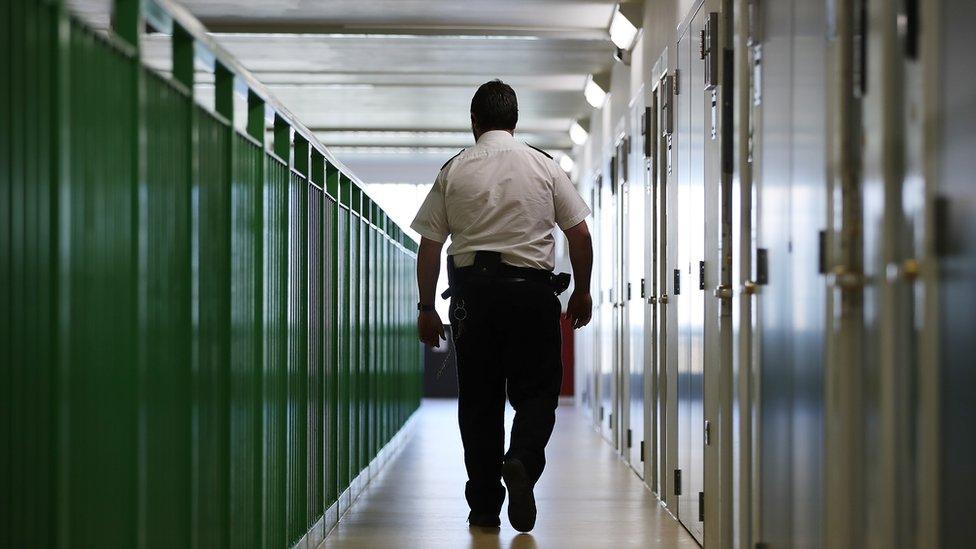
- Published11 May 2018
- Published19 January 2018
